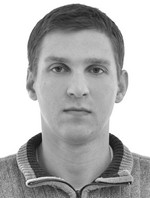Modern monotony-controlling annual training model in application to junior finswimmers
Фотографии:
ˑ:
Fizicheskaya kultura: vospitanie, obrazovanie, trenirovka №4-2017, pp.18-20
P.P. Dudchenko1
PhD, Professor V.P. Aksenov1
PhD, Associate Professor S.A. Shepelenko1
1Tula State Lev Tolstoy Pedagogical University, Tula
Objective of the study was to analyse benefits of a modern monotony-controlling annual training model in application to junior (11-12 years old) finswimmers. The study was performed at Dolphin CYORSS in Tula city. Subject to the study were 40 boys of 11-12 years of age with 4-year track records in the sport discipline. The experimental stage of the study in 2011-2012 was designed to test benefits of the proposed modern training model. The core idea of the model was to make the training process as versatile as possible by multiple training tools and methods and widely varied training conditions including interval, repeated and intermittent training formats, different rhythmic musical illustrations, training appliances etc. Benefits of the new training model were rated after a yearly educational experiment with the progress of a Study Group (trained under the experimental model) rated versus that of a Reference Group (trained under standard method). The new model of the authors’ design was proved highly beneficial.
Keywords: finswimming, junior swimmers, monotony, monotony controlling, fitness component rates, correlation with monotony.
References
- Dudchenko P.P. Plavanie v lastakh i monotoniya [Fin swimming and monotony]. Issledovatelskiy potentsial molodykh uchenykh: Vzglyad v budushchee [Young scientists' research potential: Future outlook]. Tula: TSLTPU publ., 2012, pp. 55-56.
- Dudchenko P.P., Aksenov V.P., Shuvalov Yu.N. Monotonoustoychivost kak faktor dostizheniya uspeshnosti sportivnoy deyatelnosti yunykh plovtsov v lastakh [Mono-Resistance as a Factor of Success in Sports Activity of Young Swimmers with Fins]. Teoriya i praktika fiz. kultury, Moscow, 2013, no. 8, pp. 13-16.
- Dudchenko P.P., Aksenov V.P. Struktura monotonoustoychivosti u yunykh plovtsov v lastakh [Structure of monotonous stability in junior fin swimmers]. Innovatsionnye fitnes-tekhnologii v fizicheskom vospitanii i sporte detey i podrostkov [Innovative fitness technologies in physical education and sport of children and adolescents]. Tula: TSU publ., 2013, pp. 27-29.
- Fetiskin N.P. Sistemnoe issledovanie monotonii v professionalnoy deyatelnosti. Avtoref. dis. dokt. psh. nauk [System study of monotony in professional activity. Doctoral diss. abstract (Psych.)]. St. Petersburg, 1993, 43 p.




 Журнал "THEORY AND PRACTICE
Журнал "THEORY AND PRACTICE